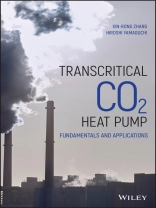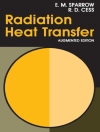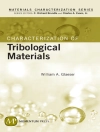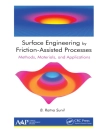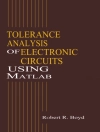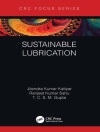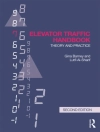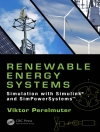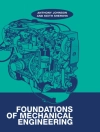A timely and comprehensive introduction to CO2 heat pump theory and usage
* A comprehensive introduction of CO2 application in heat pump, authored by leading scientists in the field
* CO2 is a hot topic due to concerns over global warming and the ‘greenhouse effect’. Its disposal and application has attracted considerable research and governmental interest
* Explores the basic theories, devices, systems and cycles and real application designs for varying applications, ensuring comprehensive coverage of a current topic
* CO2 heat transfer has everyday applications including water heaters, air-conditioning systems, residential and commercial heating systems, and cooling systems
Table of Content
List of Contributors
Preface
Chapter 1 Introduction
1.1 Background
1.2 Fundamentals
1.3 Applications
1.4 A guide to this book
Chapter 2 Current development of CO2 heat pump
2.1 Introduction
2.2 CO2 properties
2.3 Working principle of transcritical CO2 heat pump
2.4 A brief history of CO2 heat pump
2.5 CO2 cascade heat pump system
2.6 Advanced CO2 heat pump system with an ejector
Chapter 3 Fluid Dynamics and Heat Transfer of Supercritical Carbon Dioxide Cooling
3.1 Supercritical properties
3.2 Supercritical heat transfer fluid mechanics
3.3 Supercritical gas cooling experiments
3.4 Supercritical CO2 heat transfer correlations
3.5 Supercritical CO2 pressure drop
3.6 Supercritical CO2 heat transfer and pressure drop with lubricants
3.7 Summary and need for additional research
Chapter 4 Boiling flow and heat transfer of CO2 in an evaporator
4.1 Introduction
4.2 Boiling heat transfer of liquid CO2 in an evaporator
4.3 Sublimation heat ransfer of dry ice-gas CO2 in an evaporator/sublimator
Chapter 5 Theoretical analysis of CO2 expansion process
5.1 Introduction
5.2 Thermodynamic analysis of the expansion process in transcritical CO2 cycles
5.3 Theory of ejector-expansion devices
5.4 Expansion work recovery devices for transcritical CO2 systems
Chapter 6 Trans-critical carbon dioxide compressors
6.1 Introduction
6.2 Sliding vane CO2 compressor
6.3 Screw CO2 compressor
6.4 CO2 rolling rotor compressor
6.5 SCO2 scroll compressor
6.6 SCO2 turbo-compressor
6.7 SCO2 piston compressor
6.8 Future trends
6.9 Some key technical problems of CO2 compressor
6.10 Conclusion and perspectives
Chapter 7 CO2 subcooling
7.1 Introduction
7.2 CO2 thermodynamic properties and approach
7.3 Internal heat exchanger
7.4 Dedicated mechanical subcooling
7.5 Integrated mechanical subcooling
7.6 Summary
Chapter 8 High temperature CO2 heat pump system and optimization
8.1 Background
8.2 Basic system design
8.3 High temperature operation and key equipment
8.4 System Optimization
8.5 Applications and challenges
8.6 Commercialized Products by High Temperature CO2 Heat Pump
8.7 Summary
Chapter 9 Performance Analysis and Optimization of a CO2 Heat Pump Water Heating System
9.1 Introduction
9.2 System configuration
9.3 System modeling
9.4 Numerical solution
9.5 Conditions for performance analysis and optimization
9.6 Performance analysis under periodically steady state
9.7 Performance enhancement by extracting tepid water
9.8 Performance analysis under unsteady state
9.9 Performance estimation under unsteady state
9.10 Performance optimization under unsteady state
9.11 Other issues on performance analysis and optimization
Chapter 10 Transcritical CO2 heat pump space heating
10.1 Attempts towards the space heating used a transcritical CO2 heat pump
10.2 Thermodynamic analysis of the subcooler based CO2 heat pump
10.3 Comparison between the subcooler based CO2 system and the cascade cycle
10.4 Optimal discharge pressure
10.5 Optimal medium temperature
10.6 Conclusion and prospect
References
About the author
XIN-RONG ZHANG, PHD, is Professor in the Department of Energy and Resources Engineering at Peking University in China. His contribution to this area includes not only the funda-mentals, such as flow and heat transfer of supercritical CO2; but also applications, designs of commercial and industrial CO2 heat pumps, novel CO2 re-frigeration cycle using solid-gas flow, and solar powered CO2 cogeneration system. He teaches a graduate course called ‘CO2 Refrigeration and Heat Pumps’ at Peking University.
HIROSHI YAMAGUCHI, PHD, is Professor in the Department of Mechanical Engineering at Doshisha University in Japan. He received his doctorate from the University of Manchester Institute of Science and Technology in the United Kingdom in 1982. His research focus is on fluid engineering, solar energy conversion, ultra-low temperature refrigeration, and magnetic fluids.
